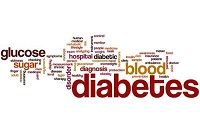Women with Type 2 Diabetes Face Worse CVD Risk, More Treatment
Not only do women with type 2 diabetes have double the risk of cardiovascular disease compared with men, but they also need more frequent and intense physical activity to lower that risk.

Not only do women with type 2 diabetes have double the risk of cardiovascular disease compared with men, but they also need more frequent and intense physical activity to lower that risk.
This is the key message in an American Heart Association scientific statement on the current state of knowledge about sex differences in the cardiovascular consequences type 2 diabetes. The statement also identifies necessary research avenues on this topic. It appears in the December 13 issue of Circulation, and was published ahead of time online.
According to the statement, written by the American Heart Association Diabetes Committee of the Council on Lifestyle and Cardiometabolic Health, Council on Epidemiology and Prevention, Council on Functional Genomics and Translational Biology, and Council on Hypertension, more than 9 percent of population had diabetes in 2012—an estimated 12.6 million women and 13 million men over age 20.
“Cardiovascular disease may be more deadly for women with type 2 diabetes than it is for men,” said Judith G. Regensteiner, PhD, chair of the statement writing group, professor of medicine and director of the Center for Women’s Health Research at the University of Colorado School of Medicine in Denver.
“While we don’t fully understand how the inherent hormonal difference between men and women affect risk, we do know that some risk factors for heart disease and stroke affect women differently than men and there are disparities in how these risk factors are treated,” she said.
According to the Committee, women with type 2 diabetes, have heart attacks at a younger age than men and more likely to die after the first attack. Yet they are less likely to receive treatments to reduce the risk: they are less likely to be taking medications to lower cholesterol or high blood pressure and less likely to undergo surgery to unclog blocked arteries.
The committee discussed research in several areas that may contribute to the differences. For instance hormonal differences and risk factors that only affect women, such as gestational diabetes and polycystic ovarian syndrome affect cardiovascular disease risk. The group also looked at differences in epidemiology, ethnic and racial differences, and lifestyle and treatment differences.
“This statement is a call for action to do the compelling research that is so important for all people with diabetes,” said Regensteiner. “To improve health equality in women and men with diabetes, we need to understand and improve both the biological reasons for the disparities and also control cardiovascular risk factors equally in both women and men,” she added.